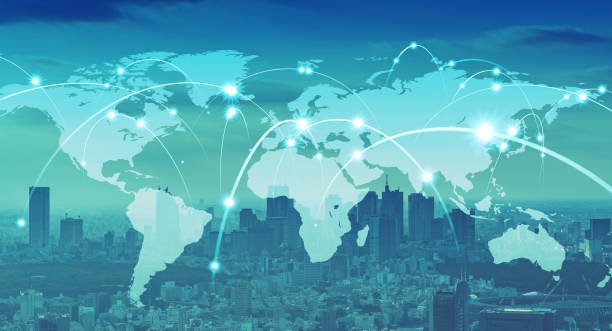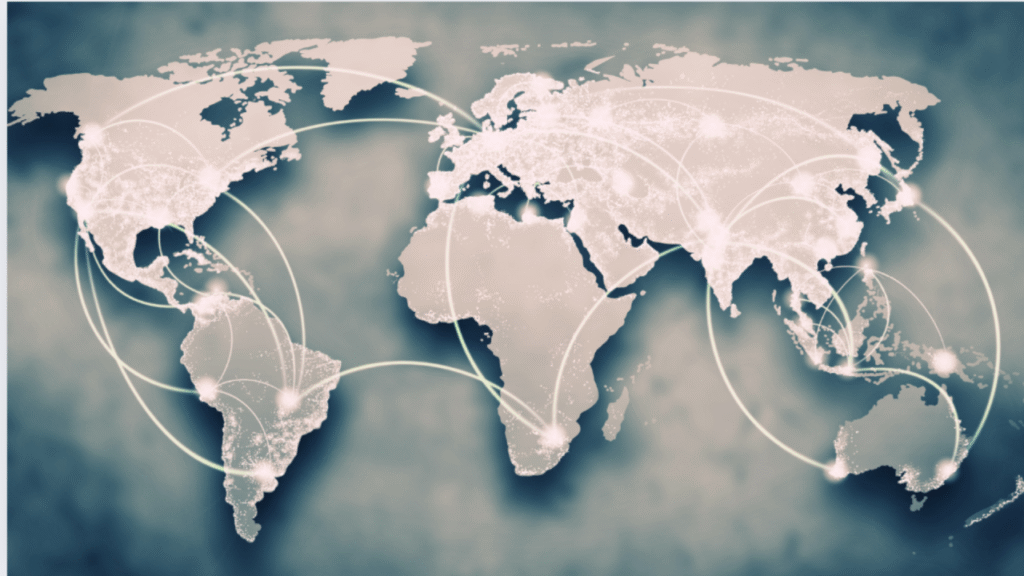In the ever-evolving world of global commerce, staying updated on the latest terms and concepts is essential for businesses, students, and professionals alike. As we enter 2025, international business is being shaped by emerging technologies, geopolitical shifts, and sustainability mandates. Whether you’re entering a new market, working with overseas partners, or studying international trade, knowing the right terminology can help you stay ahead.
Here are 10 must-know terms in international business for 2025, along with explanations, examples, and why they matter today.
1. Digital Trade Agreements (DTAs)
Definition: Legally binding international contracts focused on rules for digital commerce, data privacy, and cross-border e-commerce.
Why It Matters in 2025: As global business increasingly moves online, countries are signing DTAs to regulate data flows, cloud services, cybersecurity, and online payments. For example, Singapore has signed several DTAs with countries like Australia and the UK to ensure smooth digital trade operations.
Use Case: A Bangladeshi software firm exporting SaaS services to Europe needs to comply with digital trade regulations outlined in these agreements.
2. Nearshoring
Definition: Relocating manufacturing or services to nearby countries rather than distant ones (as opposed to offshoring).
Why It Matters in 2025: In a post-COVID and post-global supply chain disruption era, many companies are moving operations closer to home for better control, faster logistics, and political stability.
Use Case: A U.S. company shifting production from China to Mexico to reduce shipping costs and avoid tariff risks.
3. ESG Compliance
Definition: Adhering to standards related to Environmental, Social, and Governance practices in global operations.
Why It Matters in 2025: Investors and governments worldwide now demand ESG reporting. Companies failing to meet ESG benchmarks may face trade restrictions, fines, or brand damage.
Use Case: An apparel exporter in Bangladesh must prove eco-friendly sourcing and fair labor practices to continue supplying European retailers.
4. Cross-Border E-Invoicing
Definition: The digital exchange of invoices across countries using standardized formats and government-linked platforms.
Why It Matters in 2025: Tax authorities in many countries (including India, the EU, and Brazil) now require real-time digital invoices for imports and exports. This reduces fraud and speeds up trade compliance.
Use Case: A Bangladeshi electronics exporter sending e-invoices to a German buyer through an integrated invoicing system.
5. Reshoring
Definition: Bringing previously offshored business operations back to the home country.
Why It Matters in 2025: With rising transportation costs, geopolitical instability, and a focus on local employment, many global companies are reevaluating their offshoring strategies.
Use Case: A Japanese auto company bringing production back to Tokyo from Southeast Asia to reduce dependency on foreign suppliers.
6. Blockchain Supply Chain Management
Definition: Using blockchain technology to monitor and verify every step of a product’s journey across borders.
Why It Matters in 2025: Blockchain increases transparency and traceability in international trade. It helps detect fraud, validate authenticity, and automate customs clearance.
Use Case: A food exporter in India uses blockchain to show U.S. buyers the product’s farm-to-shelf journey, ensuring freshness and quality.
7. Tariff Engineering
Definition: Structuring a product’s design or import classification to reduce or avoid import duties legally.
Why It Matters in 2025: With fluctuating global tariffs, companies are finding smarter ways to reduce costs by modifying product specs or sourcing strategies.
Use Case: A smartphone manufacturer exports partially assembled phones to avoid high tariffs and completes assembly in the destination country.
8. Currency Hedging
Definition: A financial strategy used to protect against currency exchange rate fluctuations in international trade.
Why It Matters in 2025: Volatility in currency markets—caused by inflation, war, or interest rate changes—can significantly affect profits from global sales or purchases.
Use Case: A Bangladeshi RMG exporter enters a forward contract to lock in the USD-BDT exchange rate to avoid losses from rate drops.
9. Trade Nationalism
Definition: A policy approach where countries prioritize domestic industries through protectionism, subsidies, and reduced imports.
Why It Matters in 2025: Rising tensions between economic giants like the U.S. and China are leading to trade restrictions, sanctions, and national preference policies, which affect global sourcing.
Use Case: A Bangladeshi machinery importer may face difficulties sourcing parts from the U.S. due to “Buy American” initiatives or import quotas.
10. Carbon Border Adjustment Mechanism (CBAM)
Definition: A tax on imported goods based on their carbon emissions, to prevent “carbon leakage” and protect local green industries.
Why It Matters in 2025: The European Union is already implementing CBAM rules that will affect exports of steel, aluminum, fertilizer, and other carbon-heavy goods.
Use Case: A Bangladeshi steel exporter must report carbon emissions and pay additional duties when shipping to Europe if they lack a clean energy supply.
Why These Terms Matter More Than Ever
Global business in 2025 is no longer just about shipping products abroad—it’s about navigating complex digital frameworks, environmental compliance, cross-border financial management, and geopolitical uncertainty. For professionals, startups, and corporate leaders alike, fluency in these key terms can mean the difference between risk and opportunity.
Bonus Tips for Business Owners & Students:
- Stay Informed: Follow international trade organizations (like WTO, ITC) and business news outlets.
- Get Certified: Take short courses in international trade, supply chain management, or global marketing.
- Network Globally: Use platforms like LinkedIn, X (formerly Twitter), or Upwork to connect with professionals and clients abroad.
- Leverage Technology: Tools like AI translation, global CRM systems, and cloud accounting are essential for working across borders.
Conclusion
The future of international business is digital, decentralized, and sustainability-driven. Whether you’re a startup in Dhaka, a trader in Chittagong, or a global supply chain manager, understanding these 10 must-know terms can help you make smarter decisions, manage risks, and seize opportunities in 2025 and beyond.
Ready to go global? It starts with learning the language of international business.









